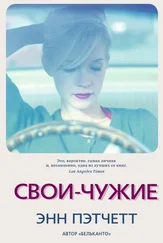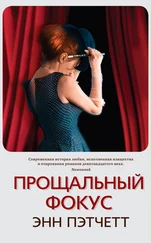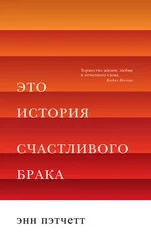“Sure,” she said, and handed it over, one finger marking the second section of chapter 9. “It’s funny to see it again, sort of like running into somebody you used to spend a lot of time with.”
“I spend a lot of time with chemistry.”
“It doesn’t change,” she said.
I looked at the page while she rifled through her bag, pulling out a slim volume of poetry by Adrienne Rich called Necessities of Life . I wondered if she was reading it for a class or if she was just one of those girls who read poetry on trains. I didn’t ask, and so we sat in companionable silence all the way to Newark. When the train stopped and the doors opened, she took a stick of Juicy Fruit from the pack in her pocket and stuck it into her book, then she looked at me again with unbearable seriousness.
“We should talk.” she said.
My girlfriend Susan had said We should talk at the end of our freshman year before telling me we were breaking up. “We should?”
“Unless you want to take down the luggage for all the women getting off in Newark and then put up the luggage for all the women getting on.”
She was right, of course. There were women glowering in my direction and then looking pointedly up at their bags. There were other able-bodied men on the train, but they were used to me.
“So you’re going home,” my seatmate said, leaning forward, smiling. She had put something on her lips to make them shiny. From a distance a person would have thought we were engaged in meaningful conversation, or that we were engaged. I was close enough to smell the vestiges of her shampoo.
“For Thanksgiving,” I said.
“Nice.” She nodded slightly, holding my gaze in a lock so that I could plainly see the slight droop in her left eyelid, a defect that would have passed unnoticed had it not been for an episode of intense staring. “Harrisburg?”
“Philadelphia,” I said, and because we were for that moment very close, I added my suburb. “Elkins Park.” I forgot for a minute that I didn’t live in Elkins Park anymore. I lived in Jenkintown, inasmuch as I lived anywhere. Maeve lived in Jenkintown.
At the mention of Elkins Park a light of familiarity sparked in her eyes. “Rydal.” She touched the blue wool scarf that covered her sternum. Elkins Park was one town over from Rydal, which meant that we were practically neighbors. A woman leaned over us to say something but my seatmate waved her away.
“Buzzy Carter,” I said, because his was the name to drop when speaking of Rydal. Buzzy and I had been in Scouts together and later played on opposing church league basketball teams. He was born popular, and by the time we got to high school he had good grades, good teeth, and a knack for racking up forty points a game, not including assists. He was playing at Penn now on a full ride.
“He was a year ahead of me,” she said with a look on her face that girls got when thinking of Buzz. “He took my cousin to junior prom though I never knew why. You were at Cheltenham?”
“Bishop McDevitt,” I said, not wanting to get into anything complicated, “but the last two years I went to boarding school.”
She smiled. “Your parents couldn’t stand you?”
I liked this girl. She had good timing. “Yeah,” I said. “Something like that.”
When the train left the station again, we resumed our commitment to be strangers, she with her poetry book, me with my chemistry. In our peaceful coexistence, we very nearly forgot about the other altogether.
When the train pulled into 30th Street Station, the woman with the plaid suitcase, the one who’d started it all, shot straight to my side and dragged me down the aisle to get her bag. It really was stuck up there, jammed between all the other bags. Even if she’d stood on the armrest she couldn’t have reached it. Then another woman needed help, and another and another, and soon I started worrying that the doors were going to close and I’d have to ride the train to Paoli and double back. I saw the blond head of my seatmate going towards the door. Maybe she’d waited as long as felt prudent, or maybe she hadn’t waited at all. I told myself it didn’t matter. I tugged down one last bag for a woman who seriously seemed to think I was supposed to carry it to the platform for her, then I shook myself loose, grabbed my coat and suitcase, my textbook, and slipped off the train just ahead of the closing doors.
My sister was never hard to find. For one thing, I could pretty much count on her being taller than everyone else, and for another she was always on time. If I was coming in on a train, Maeve would be front and center in the waiting crowd. She was there on this particular Wednesday before Thanksgiving across the terminal, wearing jeans and a red wool sweater of mine I thought I’d lost. She waved to me and I lifted my hand to wave back but my seatmate grabbed my wrist.
“Goodbye!” she said, all blond and smiling. “Good luck with the chemistry.” She hoisted her bag up on her shoulder. I guess she’d put it down to wait for me.
“Thanks.” I had some strange inclination to hide her or to shoo her away, but there was my sister, striding towards us. Maeve wrapped me in her arms, lifted me an inch or so off the ground, and shook me. The first time she’d done that was the first Easter I’d come home from Choate, and she’d kept up the tradition just to prove she could.
“Did you meet someone on the train?” Maeve said, looking at me instead of her.
I turned to the girl. She was a perfectly average size, though everyone looked small when they stood between me and my sister. I remembered then that I hadn’t asked her name.
“Celeste,” the girl said, and held out her hand, so we all shook hands. “Maeve,” said Maeve, and I said, “Danny,” and then we all wished one another a happy Thanksgiving, said goodbye, and walked away.
“You cut off your hair!” I said once we were out of earshot.
Maeve reached up and touched her neck just below the place where her dark hair ended in an abrupt bob. “Do you like it? I thought it made me look more like an adult.”
I laughed. “I would have thought you’d be sick of always looking like the adult.”
She linked her arm through mine and dipped her head sideways to touch my shoulder. Her hair fell forward and covered her face for an instant, so she tossed her head back. Like a girl , I thought, and then remembered Maeve was a girl.
“These will be the best four days of the year,” she said. “The best four days until you come home for Christmas.”
“Maybe for Christmas you’ll come see me. I came to see you for Easter when you were in college.”
“I don’t like the train,” Maeve said, as if that were the end of that.
“You could drive.”
“To Manhattan?” She stared at me to underscore the stupidity of the suggestion. “It’s so much easier to take the train.”
“The train was nightmare,” I said.
“Was the girl a nightmare?”
“No, the girl was fine. She was a big help, actually.”
“Did you like her?” We were nearly to the door that led out to the parking lot. Maeve had insisted on driving in to get me.
“I liked her as well as you like the person you sit next to on the train.”
“Where’s she from?”
“Why do you care where she’s from?”
“Because she’s still standing there waiting and no one’s come to meet her. If you like her then we could offer her a ride.”
I stopped and looked over my shoulder. She wasn’t watching us. She was looking in the other direction. “Now you have eyes in the back of your head?” I had always thought it was possible. Celeste, who had seemed so competent on the train, looked decidedly lost in the station. She had saved me from a lot of luggage handling. “She’s from Rydal.”
Читать дальше
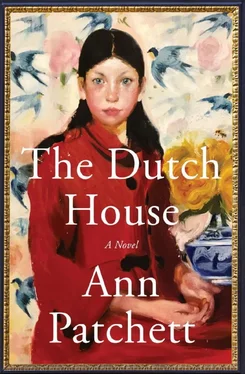
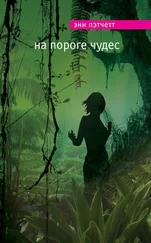

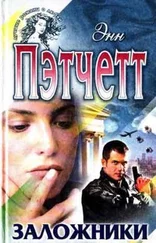
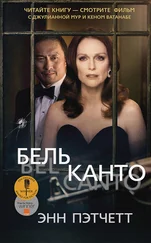
![Энн Пэтчетт - Прощальный фокус [litres]](/books/402782/enn-petchett-prochalnyj-fokus-litres-thumb.webp)
